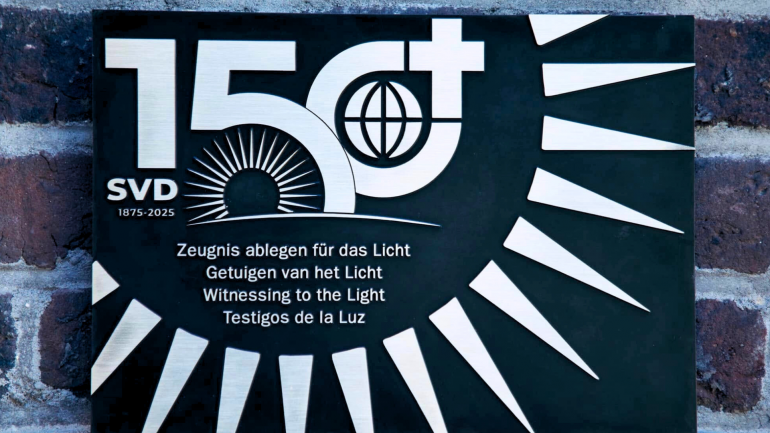Called to Love, Sent to Serve: 150 Years of Divine Word Missionaries

In 1875, a young German priest named Arnold Janssen heard the cry of the world and answered it with the Word of God.
He founded the Society of the Divine Word, sending missionaries out to walk with the forgotten, to
live among the poor, to teach, to heal, and simply to be present. That quiet beginning has now grown into a global family of nearly 6,000 members from 76 nationalities, all living the motto: “Witnessing to the Light: From Everywhere, For Everyone.”
In the 150 years since its founding, the Society of the Divine Word (SVD) stands as a testament to the power of unity in diversity Interculturality is their DNA. The Divine Word Missionaries, as they are popularly known, now serve in 79 countries, grouped into 59 provinces. They are the sixth largest male religious congregation in the Catholic Church, and the largest ad gentes male congregation.
When sent on mission, they brought more than just words. They brought shelter, education, compassion, and deep listening. They stood beside those cast aside, transcending borders of creed, culture, and language.
In India, they found a land rich in spirit but scarred by poverty, division, and injustice. Still, they stayed. Still, they served. They learned the languages, understood the customs, and respected the sacredness of each person’s story. Through decades of patient work, they became brothers and friends. The SVDs may not have built colossal structures in India, but their legacy lives in the development they brought to tribal villages in Jharkhand; in the education they extended to the historically forgotten regions of Andhra Pradesh; in the care offered to poor women in labor at their clinics; and in the passionate way foreign missionaries preached the Word of God in local languages like Telugu and Tamil.
They did all this with humility. Living their theme “Witnessing to the Light: From Everywhere, For Everyone,” missionaries from dozens of nations work side by side, their different cultures and languages becoming a beautiful tapestry of service.
In Asia, where divisions often run deep on many fronts, the SVDs have never forced faith. They preached Jesus and welcomed those who voluntarily embraced the message. They built schools not to convert, but to free minds. They opened clinics not to preach, but to save lives. They listened to stories told by widows and farmers, by youth and elders, and responded not with judgment, but with presence.
In India, the Divine Word Missionaries arrived at a time when independence was still a dream. Their early missions faced great hardship. They walked dusty roads, slept in huts, ate simple meals, and wept with the people they served. They faced persecution, too. But over time, their love became a bridge between communities, a bridge between faith and action.
Today, that same spirit continues. Young missionaries in India still go where no one else will go into slums, remote villages, and refugee camps. They do not go because it is easy, but because love compels them. Their lives are not loud. They don’t seek headlines. Yet, in quiet corners of this vast country, their impact is clear.
The mission is still unfolding. The SVDs know that to love is to keep moving. To serve is to keep listening. The world changes. But the heart of the mission remains the same: to bring the Word to life in flesh and feeling. In dialogue with other faiths, they build peace, care for the environment, and echo Christ’s compassion.
As the Society of the Divine Word marks its 150th anniversary, it does so in a spirit of gratitude for the call they received, the people who welcomed them, the lands that formed them, and the mission that continues to guide them: Go. Love. Serve.
In India and across Asia, that mission has become a living witness, carried by thousands of SVD priests, brothers, and lay partners who have chosen the path of service over comfort.
The journey goes on. The Word remains alive.
Wherever there is suffering or isolation, the Divine Word Missionaries continue to walk alongside others not to preach from above, but to share in their lives and remind the world that love is lived, not just spoken.








